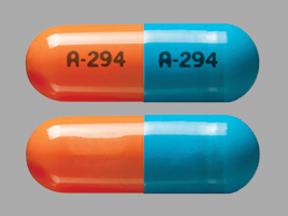
Trimipramine Coupons & Savings Card – Discount Prices from $57.73
My prescription
Edit
50MG, Trimipramine (30 Capsules)
Select pharmacy

CVS
$74.39
COUPON PRICE
Walgreens
$57.73
COUPON PRICE
Albertsons
$59.73
COUPON PRICE
Walmart
$169.15
COUPON PRICETrimipramine savings card
Show this card to your pharmacist
Walgreens
$57.73
BIN
ID
PCN
GRP
015995
LHKPU486526
GDC
DR33
Powered by
More prescriptions for depression
More prescriptions for depression
Trimipramine dosage forms
Dosage Quantity Price from Per unit 25MG 30 Capsules $45.45 $1.51 25MG 100 Capsules $134.02 $1.34 50MG 30 Capsules $70.76 $2.36 50MG 100 Capsules $205.28 $2.05 100MG 30 Capsules $95.09 $3.17 100MG 100 Capsules $299.45 $2.99
| Dosage | Quantity | Price from | Per unit |
|---|---|---|---|
| 25MG | 30 Capsules | $45.45 | $1.51 |
| 25MG | 100 Capsules | $134.02 | $1.34 |
| 50MG | 30 Capsules | $70.76 | $2.36 |
| 50MG | 100 Capsules | $205.28 | $2.05 |
| 100MG | 30 Capsules | $95.09 | $3.17 |
| 100MG | 100 Capsules | $299.45 | $2.99 |
Trimipramine Warnings
This guidance provides essential information on the safe use of trimipramine, highlighting potential risks and necessary precautions. It is crucial to review these points and discuss any concerns with your healthcare provider.
Increased Risk of Suicidal Thoughts or Behavior: Trimipramine may heighten the risk of suicidal thoughts or behavior, particularly during the initial months of treatment or after a change in dosage. This risk is more pronounced in individuals aged 24 years or younger, those with a history of depression or mood disorders, and those starting or adjusting trimipramine dosage. Report any unusual mood or behavior changes to your healthcare provider immediately.
Bipolar Disorder Concerns: Depression could be an early indicator of bipolar disorder, which trimipramine does not treat and may trigger manic episodes. Inform your provider about any personal or family history of bipolar disorder prior to starting trimipramine.
Serotonin Syndrome Risk: Although rare, trimipramine can lead to serotonin syndrome, especially when taken with certain medications for depression, migraines, or pain management. Symptoms include high fever, abrupt cognitive or mood changes, and elevated blood pressure. Provide a complete list of your medications to your healthcare provider to assess risk.
Heart-Related Risks: If you have a history of heart disease, consult your healthcare provider before using trimipramine. There have been reports of increased heart rate, irregular heartbeats, heart attacks, and strokes in patients taking this medication.
Drowsiness and Sleepiness: Trimipramine may cause drowsiness, particularly during the first few days of treatment. Exercise caution when driving or operating machinery until you know how the medication affects you. If drowsiness persists, discuss possible dosage adjustments with your provider.
Withdrawal Symptoms: Do not abruptly stop taking trimipramine without consulting your healthcare provider, as it may lead to withdrawal symptoms such as nausea, headaches, and uneasiness. Your provider can guide you on gradually reducing the dosage to minimize these effects.
Contraindications:
- Avoid using trimipramine if you are recovering from a recent heart attack or have taken a monoamine oxidase inhibitor (MAOI) within the last 14 days, as these conditions can pose significant health risks.
Always consult your healthcare provider for personalized advice and ensure they are aware of your complete medical history and current medications.
Trimipramine Side Effects
Common side effects:
- dizziness
- drowsiness
- headache
- dry mouth
- blurred vision
- constipation
- changes in appetite
- changes in weight
- pins and needles in the arms and legs
- nausea
- vomiting
Serious side effects:
- mental or mood changes
- confusion
- depression
- numbness or tingling in the hands or feet
- severe headaches
- sexual problems
- slow, fast, or irregular heartbeat
- fainting
- seizures
- difficulty speaking
- weakness on one side of the body
- serotonin syndrome
- fast heartbeat
- hallucinations
- severe nausea
- muscle twitching
- blood problems
- liver problems
- easy bruising
- persistent sore throat
- yellowing of the skin or eyes
- allergic reaction
- rash
- itching
- swelling
- difficulty breathing
Trimipramine Interactions
When taking trimipramine, be aware of potential interactions with certain medications and supplements. It is important to inform your doctor and pharmacist about all the medicines and supplements you are currently taking, including prescription, over-the-counter, vitamins, and herbal products.
Serious Interactions: Avoid using trimipramine with MAO inhibitors such as isocarboxazid, linezolid, Metaxalone, methylene blue, moclobemide, phenelzine, procarbazine, Rasagiline, safinamide, Selegiline, and Tranylcypromine. Combining these can lead to a dangerous, possibly life-threatening reaction. Some MAO inhibitors should not be taken for two weeks before or after using trimipramine. Consult your doctor for guidance on when to start or stop these medications.
Serotonin Syndrome Risk: The risk of serotonin syndrome, a potentially serious condition, may increase if trimipramine is taken with other drugs that elevate serotonin levels. This includes certain antidepressants like SSRIs (e.g., Fluoxetine, paroxetine) and SNRIs (e.g., Duloxetine, Venlafaxine), as well as substances like MDMA ("ecstasy") and St. John's wort. This risk is higher when beginning or increasing doses of these medications.
Heart Rhythm Concerns: Trimipramine can affect heart rhythm (QT prolongation). Medications like disopyramide and dronedarone can also cause this effect. Inform your healthcare provider about all the medicines you take, to prevent any heart-related complications.
Drowsiness and Sedation: Trimipramine may cause drowsiness. Be cautious if you are taking other products that have sedative effects, such as opioid pain relievers (e.g., codeine, Hydrocodone), drugs for sleep or anxiety (e.g., Alprazolam, Lorazepam), muscle relaxants (e.g., Carisoprodol, Cyclobenzaprine), and certain antihistamines (e.g., Cetirizine, diphenhydramine). Also, check the labels of all your medications for ingredients that may cause drowsiness and consult your pharmacist for safe usage.
Always consult with your healthcare provider before starting or stopping any medication to ensure safe and effective treatment.
